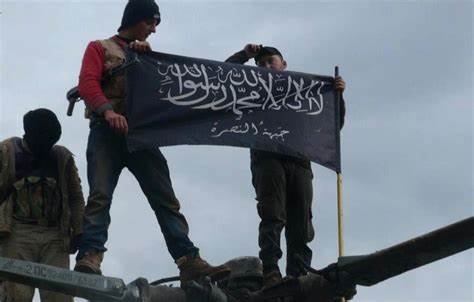Syria’s new authorities are embarking on a unique and controversial approach to rebuilding their police force by incorporating Islamic teachings into their training programs. This strategy, according to officers involved in the effort, is intended to instill a sense of morality and ethical behavior among recruits. The move comes as the nation grapples with the immense task of restoring order and stability following the dismantling of former President Bashar al-Assad’s corrupt and oppressive security apparatus.
The new police recruits, primarily drawn from rebel strongholds such as the Idlib region, are undergoing training that emphasizes Islamic sharia law alongside other essential skills. Applicants are being vetted based on their beliefs, as revealed in application forms seen by Reuters. The intention, according to senior police officers, is not to impose religious law on the general population but to ensure recruits are well-versed in ethical conduct and the moral guidelines outlined by Islam. However, this approach has sparked concerns among some Syrians and foreign governments, as it underscores the significant role religion may play in Syria’s evolving governance.
The initiative, while aimed at fostering a sense of justice and order, risks alienating segments of Syria’s diverse population. The country, which has endured over a decade of civil war, remains a patchwork of religious and ethnic groups, including Christians, Alawites, Druze, and Sunni Muslims who favor secular governance. Critics argue that placing religion at the heart of the new policing system could deepen societal divides and undermine efforts to create an inclusive and stable state. Aron Lund, a fellow at Century International, highlighted this potential pitfall, pointing out that even many Sunni Muslims in urban centers like Damascus and Aleppo may be wary of religious governance.
The focus on Islamic law has also drawn the attention of Western governments and regional powers. Ahmed al-Sharaa, Syria’s de facto leader, has made efforts to reassure these stakeholders, emphasizing his faction’s moderate stance and its commitment to protecting minorities. While the coalition he leads, Hayat Tahrir al-Sham (HTS), has renounced its former ties to al-Qaeda and shifted toward pragmatism, doubts persist about how this ideology will manifest in practice. HTS’s past enforcement of strict Islamic codes in Idlib, including morality patrols targeting women, has left a lingering sense of unease among many Syrians.
The new police force faces monumental challenges in establishing itself. The aftermath of Assad’s fall in December saw widespread looting and the ransacking of police stations across Damascus, leaving most facilities in disarray. Efforts to reopen these stations have been slow, with staffing levels drastically reduced compared to the pre-conflict era. Senior officers acknowledge that the current force is stretched thin, with just a handful of personnel managing stations that once had hundreds of officers. Despite these difficulties, there is a push to rebuild and expand the police service, with more than 200,000 people reportedly expressing interest in joining.
Recruits are undergoing a condensed 10-day training program focused primarily on weapons handling and Islamic law. This expedited training reflects the urgency of filling the security vacuum but has raised concerns about the adequacy of preparation. Senior officers have indicated plans to extend the training period to nine months as stability improves, drawing on systems developed in Idlib. The training curriculum includes lessons on Islamic jurisprudence, the biography of Prophet Mohammad, and codes of conduct, aiming to mold recruits into a disciplined and morally guided force.
The inclusion of religion in the recruitment process has been met with mixed reactions. Application forms ask recruits about their “referential authority,” a term often used to identify religious leaders deemed authoritative by various Islamic sects. While officials have described this as a routine measure to screen applicants, particularly those with potential ties to Assad’s regime, critics fear it could lead to discrimination, especially against minorities such as the Alawites.
The focus on sharia law has deterred some potential recruits, particularly those from minority faiths. A former Christian traffic officer expressed his reluctance to apply for the new force, citing concerns about being perceived as aligned with the previous regime and fears of religious discrimination. Meanwhile, demonstrations in Damascus have highlighted broader public unease with the increasing emphasis on religion in governance. Protesters have called for secular rule and equal rights for women, reflecting the aspirations of a diverse and cosmopolitan population.
Despite these challenges, HTS officials insist their approach is driven by a commitment to justice and ethical governance. Leaders like Hamza Abu Abdel Rahman, who played a key role in establishing the police academy in Idlib, argue that understanding religious principles is essential for recruits to “act justly” and earn the public’s trust. However, the group’s track record and the presence of hardliners within its coalition continue to fuel skepticism about its intentions and long-term goals.
At the operational level, the new police force is grappling with severe resource constraints. Stations visited by Reuters were in a state of disrepair, with looted equipment, broken furniture, and stolen communications tools. Officers are working under challenging conditions, with some even sleeping in their offices due to long hours. The need for immediate solutions has led to unconventional measures, such as granting temporary approvals for private security arrangements and neighborhood protection groups.
Despite the hurdles, there are signs of progress. The recent graduation of 500 police cadets from the Damascus academy represents a step toward rebuilding the force. Recruits like Zakaria al-Hiji, a 19-year-old from Deir al-Zor, view the new police as an opportunity for stability and financial security. However, the long-term success of the initiative will depend on the ability of Syria’s new leaders to balance their reliance on Islamic principles with the need to address the concerns of a diverse and war-weary population.


